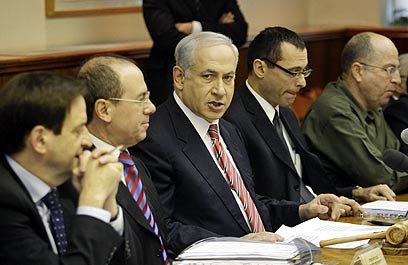
The government approved Sunday the national program for the reduction of alcohol consumption at the cost of NIS 27 million (about $7.15 million) over a period of three years. Some NIS 8 million ($2.12 million) will be immediately invested in a public relations campaign to target both teens and adults.
As part of the program's first stage the government is planning to legislate laws for the reduction of alcohol consumption. The second stage will include creating alcohol rehabilitation centers for youths.
In addition, the State is also slated to track teens drinking alcohol in the streets. The second stage will also include the creation of an inter-ministerial committee which will draft recommendations to be submitted to the government within 45 days.
Minister Silvan Shalom opposed the initiative proposed by the Public Security Ministry and stated, "Teens are not public enemies. We must not resort to hysterics. If there is a problem, it should be solved using proportionality, not additional decrees."
The minister further specified several decrees that have been imposed on teens in recent times, such as raising the minimum driving age and motorcycle insurance rates. "This type of program cannot be carried out by quick legislation but by using judgment. Alcohol should be fought with education, and a PR campaign," he explained.

Netanyahu warns of 'epidemic' at cabinet meeting (Photo: AP)
'We're facing an epidemic'
Education Minister Gideon Sa'ar said he is trying to recruit the youth movements, National Service trainees and youth councils to fight the war on alcohol. According to Sa'ar, teams from the Education Ministry and the youth movements are promoting joint work plans on the issue. "A counselor often has more influence than a parent," he said.
Prime Minister Benjamin Netanyahu addressed the war on alcohol during Sunday's cabinet meeting and said, "We are facing an epidemic. There has been a 15% increase in alcohol consumption over the past three years.
"A third of all teens reported getting drunk last year. Some 20% of sixth grade male students reported drinking alcohol once a week. This is the second highest rate in Europe."
The prime minister further stressed the importance of fighting the phenomenon and specified the government's planned measures, which include limiting the sale of alcohol to minors via legislation, increasing punishment against law violators, increasing enforcement in clubs and bars and creating a public atmosphere against teen drinking through education and public activism.















